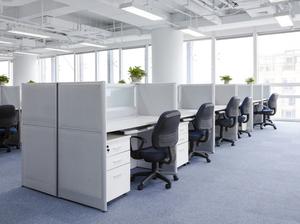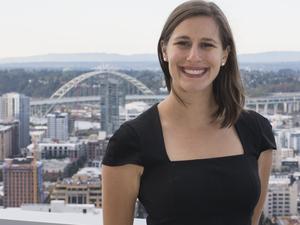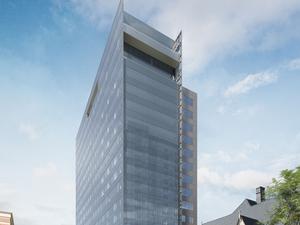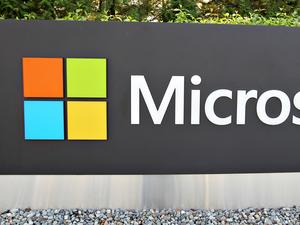
Sixty-eight percent of respondents to a Technology Association of Oregon survey told the industry group that their companies saw employee attrition during the pandemic.
At the same time, nearly 64% said they did not do any layoffs.
The results show that Oregon tech companies, like companies nationwide, face a workforce that's a lot more mobile, particularly with more options for remote work.
“(Attrition) was not something we were hearing about before Covid,” said TAO chief operating officer Cara Turano. “In my 20ish years working in tech there has always been a great hiring need. And keeping up with demand has always been a challenge. The attrition we are seeing now is part of the Great Resignation narrative.”
National surveys show employees are burned out and the pandemic has caused people to re-evaluate their lives and work.
TAO surveyed executives, getting 47 responses largely from organizations between 100 and 500 employees. Here are some of the highlights:
- The two most common reasons given for employees leaving: better compensation and professional development opportunities.
- Work-life balance and better benefits were also mentioned.
- 55% of respondents said they have changed or are changing benefit packages to boost retention.
The results of the survey prompted TAO to re-evaluate its own benefit offerings for members, said Turano. The group already offers health insurance and 401(k) support for smaller member companies. The group is now studying options for short- and long-term disability, as well as other health and wellness options.
According to the survey, some of the areas executives have changed are:
- Enhanced leave policies, including paid sabbaticals
- Enhanced health benefits including trans-inclusive care, health savings accounts and mental health services
- Childcare subsidies
- Paid family leave
- Clarity around promotions and development
- Remote-first environments
- Increased pay
- Learning and development stipends
“We are hearing from executives, they are absolutely happy to have conversations with staff about benefits, career progression, salary and are very open in a way that employers maybe weren’t perceived of in the past,” Turano said.
Portland tech companies large and small have increasingly seen competition from bigger organizations from the Bay Area, Seattle or New York opening outposts in the Rose City. Companies like New Relic, Amazon and Intel have deep pockets and competing for talent on salary has always been challenging.
Now that even more of those organizations are shifting to remote work, the competition is increasing.
“The salary issue is still a problem and it’s hard to compete,” she said. “It’s an advantage that (those large companies) have over smaller companies in any market.”
Turano noted some companies with local offices have successfully offered in-office work for employees seeking onsite mentorship from more senior employees, a compelling talent attraction for junior employees.
Another potential advantage for Portland companies is the city's existing reputation for work-life balance. Local execs echoed that commitment in their responses.
“Portland has always had that as a competitive advantage. I don’t know that that is a guarantee from a Bay Area company,” Turano said.
Here's a sampling of insights gleaned from open answers in the survey:
- “Our biggest challenge is compensation. Bay Area companies that pay Bay Area wages for people living in Portland are tough to compete with. As a result, they are taking our talent. Being 100% remote has changed the talent game for sure.”
- “I think the benefits employees most appreciate in this pandemic are flexibility and being listened to sincerely with an open mind. Emotional support seems to be more highly valued than anything we can offer through benefits or compensation.”
- “Covid has provided a necessary wake-up call—I had covid last year and it took me months to recover. I was left with serious side effects, and there’s nothing like grinding away at a job that could be satisfying but isn’t, with an employer who could offer more but doesn’t, realizing any of us could be dead before the end of the year. The crazy thing is that in this environment, employees are now able to ask for what they are worth.”








